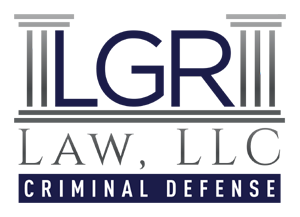United States Sentencing Guidelines Amendments to take Effect November 1, 2023
The federal sentencing guidelines are being amended in areas that will affect many people convicted of federal crimes. A summary of some of the important changes is set forth below.
Compassionate Release:
The section relied upon and referred to as “compassionate releases” (§ 1B1.13) is expanded in several ways:
- Permits these motions to be filed by defendants (just as the First Step Act (“FSA”) does.
- The descriptions of extraordinary and compelling reasons (ECRs) were moved from the commentary to the text.
- Expanded the medical circumstances of ECRs including medical conditions that are not being sufficiently treated by the BOP.
- ERCs to include certain health emergencies including outbreaks of infectious diseases.
- Created ERC for people in custody subject to sexual or physical abuse
- Created a catchall ECR
- Explained when changes in the law may be considered ECR — a person has to have served at least 10 years and other reasons.
- Rehabilitation on its own not ECR, but can be considered with other factors to amount to ECR
Criminal History Amendments:
- Elimination of Status Points:
- The Commission eliminated status points in most cases (the +2 that apply if a person committed the instant offense under a criminal justice sentence). There is a plus 1 status point that applies when a person already receives 7 or more criminal history points.
- The Commission created a new guideline at §4C1.1 which provides a 2 level offense reduction for “certain zero-point offenders.”
- The Commission amended §5C1.1 application note 4 to note that a sentence other than imprisonment is “generally appropriate” if a person is in Zone A or B of the sentencing table and gets the §4C1.1 reduction. Also, the Commission suggests a departure, including to a sentence of non-imprisonment, may be appropriate for a person in any sentencing zone if they qualify for §4C1.1 and the guideline range overstates the gravity of the offense.
- The Commission added to its examples of instances where a §4A1.3 downward departure for overrepresentation of criminal history may be appropriate to include persons who receive criminal history points from a conviction for the simple possession of marijuana.
Acceptance of Responsibility:
- The Commission provides that the government should not withhold extra third point for acceptance of responsibility for reasons other than having to prepare for trial, which the Commission defined very narrowly.
Firearms:
- The Commission created a tiered enhancement (between 2 and 5 levels) at §2K2.1(b)(5) for persons convicted of certain straw purchasing and trafficking offenses.
- The Commission created a 2-level enhancement for people who qualify for the tiered (b)(5) enhancement and who committed the offense in connection with their participation in a criminal organization/group (gangs)(but there is a two-level reduction here for certain persons).
- The Commission added a 4-level enhancement at §2K2.1(b)(4)(B)(ii) for firearms with no serial numbers but this enhancement carries a mens rea requirement (knowledge/willful blindness).
Career Offender:
- The Commission expanded §4B1.2 to include Hobbs Act Robbery as a “crime of violence” and to move its definitions of robbery, forcible sex offense and extortion from the commentary to the text.
- The Commission moved the provision which includes inchoate offenses as a “crime of violence” or “controlled substance offense” from the commentary to the text.
Fake Pills:
- The Commission added a new paragraph to §2D1.1(b)(13), which adds a 2-level enhancement where a person represented a legitimately manufactured drug a mixture or substance containing fentanyl or a fentanyl analogue and acted with willful blindness or conscious avoidance of knowledge that the substance was not the legitimately manufactured drug.
If you or a loved one is charged or threatened with a federal offense in New York or New Jersey, contact the office of LGR Law, LLC. Lorraine Gauli-Rufo and the attorneys at LGR Law keep on top of changes in the law, especially those changes that help their clients to avoid jail or to obtain a reduced jail sentence. LGR Law has successfully represented clients faced or threatened with firearm offenses, drug offenses, healthcare fraud, tax fraud, internet fraud, wire fraud and credit card fraud, bank fraud, and child pornography offenses, among other offenses. Contact the experienced and seasoned federal criminal defense attorneys at LGR Law. We fight for your rights and protect your freedom! www.lgrlawgroup.com 973 239 4300.





0 Comments